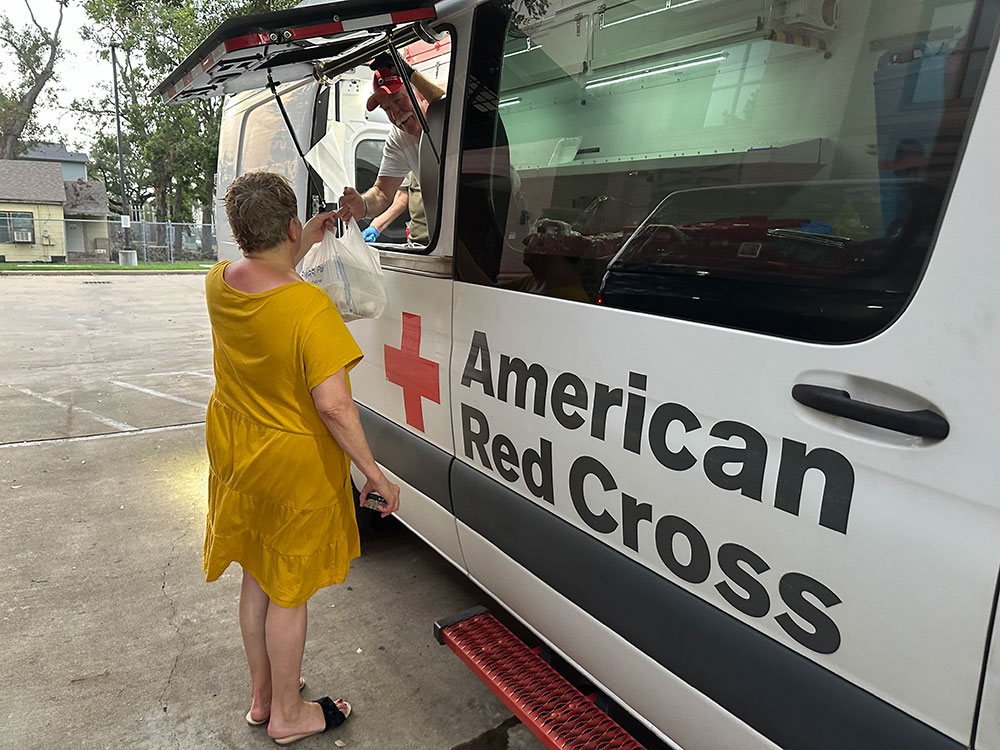
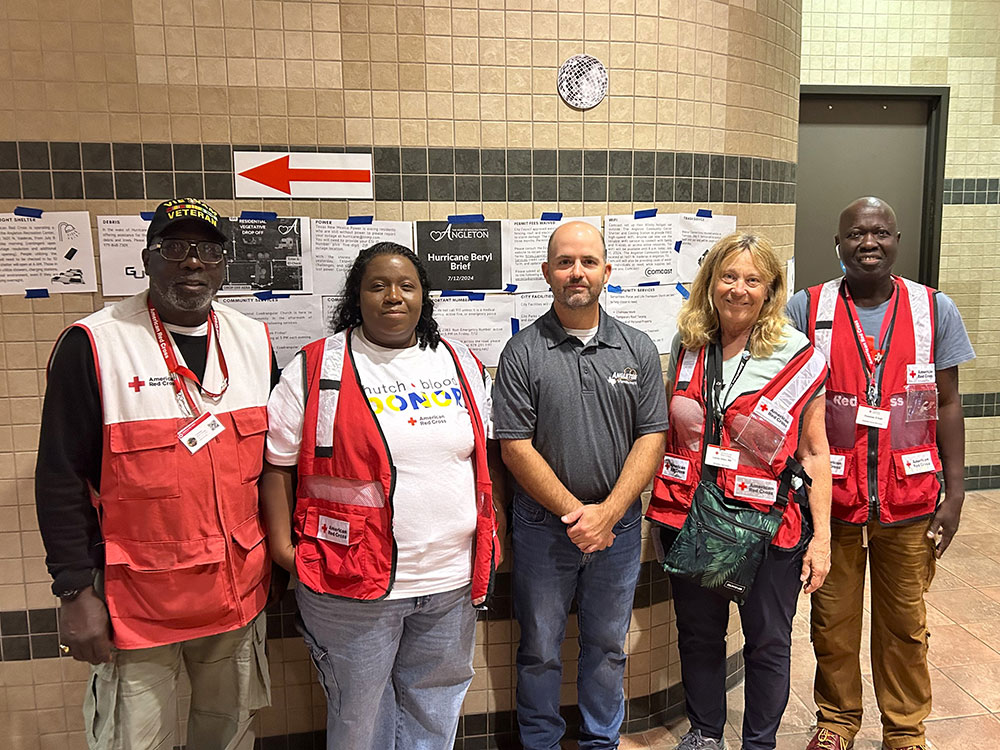
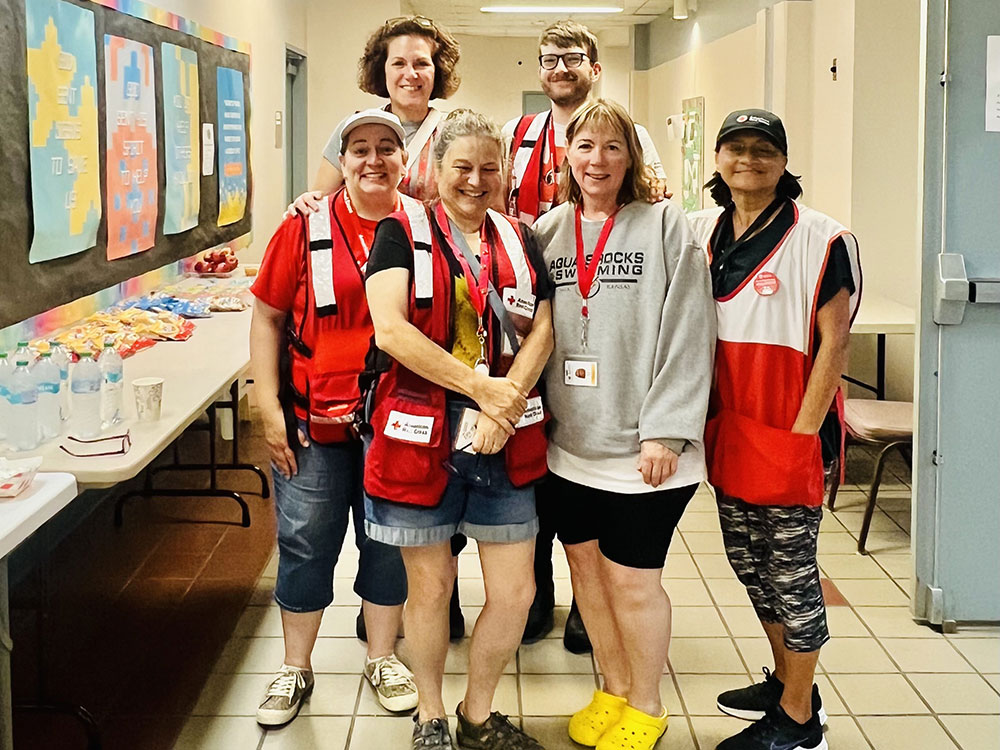
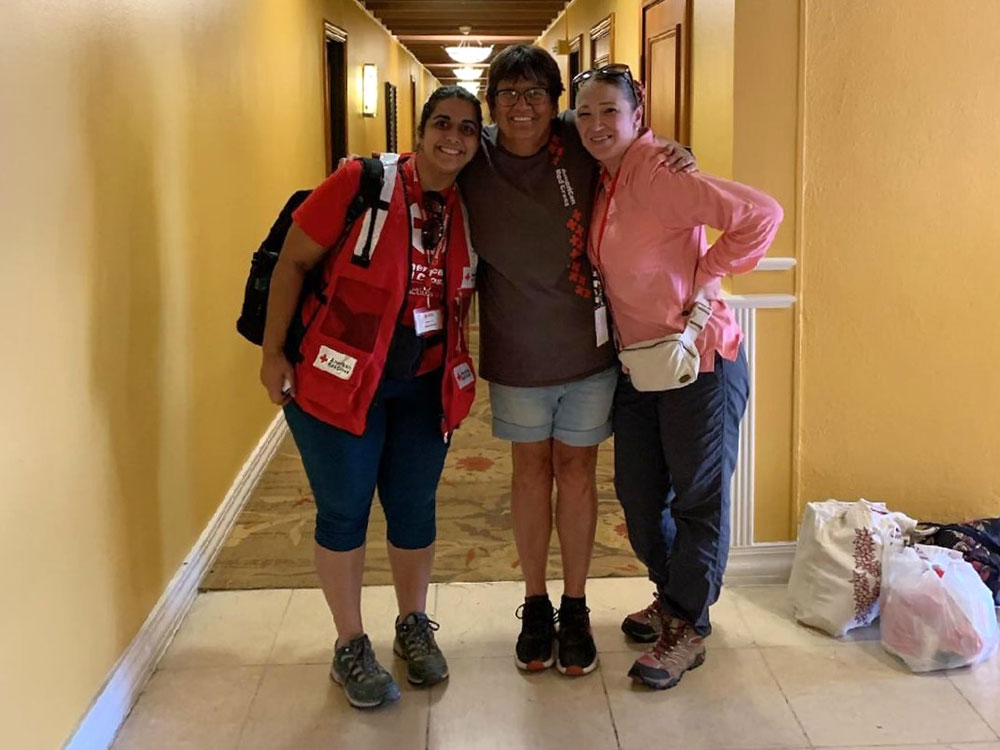
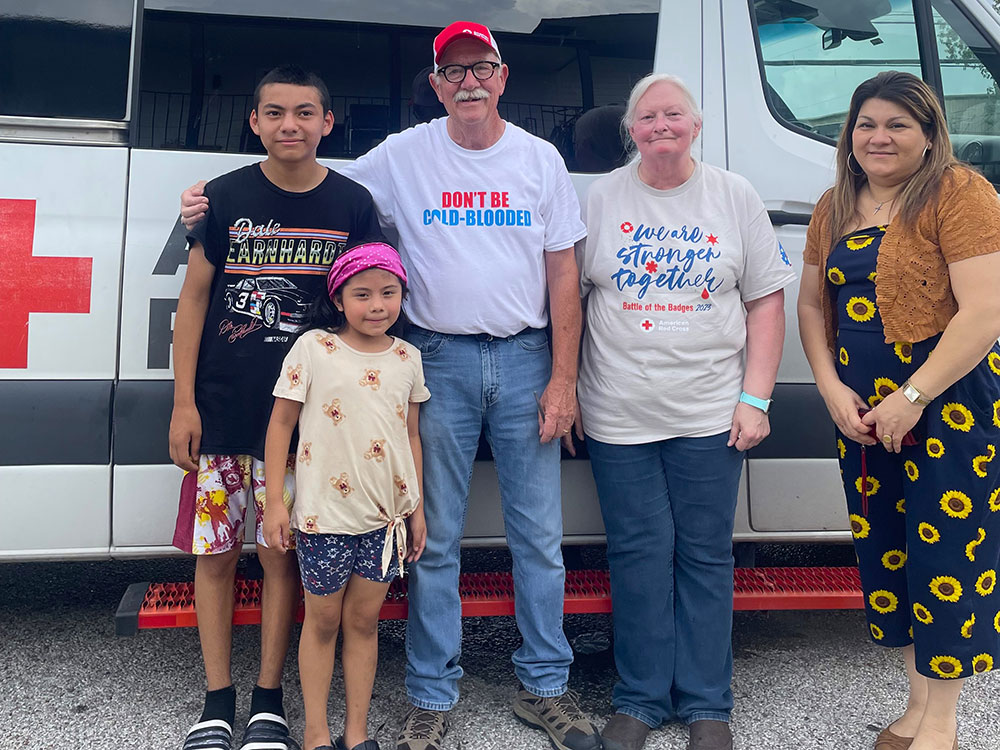
by David Guth
Fourteen American Red Cross volunteers from the Kansas-Oklahoma region deployed to the Texas Gulf Coast, often working in unfamiliar positions, when Hurricane Beryl struck in July.
The storm, previously classified as a Category 5 hurricane, had been downgraded to Category 1 when it made landfall on the morning of July 8 near Matagorda, Texas. Nevertheless, Beryl had a devastating impact, killing seven people in the U.S. and another 11 in the Caribbean. It also knocked out electric power to more than 3 million people in the U.S., including 2 million in the Houston metropolitan area.
Compounding the problem was the omnipresent Texas summer heat with temperatures in the upper 80s and 90s.
More than 700 Red Crossers supported relief efforts. With their partners, they provided more than 86,000 hot meals, more than 275,000 shelf-stable meals and over 65,000 relief items such as cleaning supplies and comfort kits.
Ari Davis, a business consultant from Wichita, was thrust into a first-time role as shelter supervisor for the largest of the Red Cross shelter in Angleton, Texas.
“We originally set up as a shelter for 100 people but increased its capacity to 250 and to 150 for day cooling services,” she said.
Even though there were times that the real number of people seeking shelter from the storm and oppressive heat exceed those limits, Davis said the shelter volunteers kept their focus on the Red Cross mission.
“Our mission here is to serve this community in their time of need, during what is probably one of the most devastating times they may experience,” she said. “I’ve had people who were working with me say that they’ve been on plenty of deployments, and that they have never seen a shelter run so smoothly.”
Retired firefighter Keven Mann of Emporia, Kansas, also found himself in a new role. After initially being deployed to Houston and then San Antonio, he transferred to the Texas Division of Emergency Management’s emergency operations center in Austin. Describing himself as one who likes to work “behind the scenes,” Mann said his role there was to serve as a liaison between the Red Cross and other responding agencies and non-government organizations. He had worked in government operations before, but never at that level or scale.
“They requested 10 semi-truckloads of meals ready-to-eat (MREs), Mann said. “That was the most unique and usual request I’ve ever filled.”
Mann said another personal highlight was meeting Texas Lt. Gov. Dan Patrick, who visited the EOC to thank those assembled for their service and to present each with his personal challenge coin.
“That was pretty cool,” Mann said.
Toni Floyd of Healy, Kansas, was another Red Crosser from our region serving in an unfamiliar role. Normally assigned to work within shelters, Floyd spent most of her time at the airport assisting other volunteers who were deployed to the disaster response.
“What I did was a lot of just making sure that staff, as they were flying in, were greeted and that their questions were answered,” she said. “I did a lot of running around for Staff Services, taking [purchase cards] to different shelters when they were needed. I just did a lot this trip.”
Tim and Jana Stocker of Wichita spent much of their time driving an emergency response vehicle delivering meals, first to shelters and later in neighborhoods sweltering without electricity in the Gulf coastal heat. Tim says the residents were always grateful to see the Red Cross vehicle drive down their streets.
“The people we were serving were thankful for anything they could get,” he said. “But we noticed a lot of people were telling us that they wanted meals for neighbors who couldn’t make it down to the truck and they were going to take food up to them.
“That was very touching, knowing that people were coming together,” Stocker added.
Linda Mueller, a psychological counselor from North Newton, Kansas, served in a similar role at the Angleton shelter. While others addressed the physical needs of both the clients and the staff, Mueller’s focus was on their mental health during a period of high stress.
“The Red Cross wants to encompass the whole person,” she said. “Anytime there’s a traumatic event, such as a loss of life, house or property, there is mental health piece that has to be addressed.
“A lot of times, it is just about people who need to tell their story. They want someone to hear the details,” Mueller said. “It such a privilege to be able to be a pillar of strength, if you will, for these people who have just gone through devastation, loss of life and loss of their home. Home is supposed to be your safe place.”
All of the volunteers interviewed spoke of the great satisfaction they received through helping others. They also spoke of the importance of being flexible in adjusting to ever-changing circumstances and about the satisfaction that comes with helping others.
“It was such a great experience,” Ari Davis said. “I will always remember this and relish it because this is something that I ‘m so proud of.”
About the American Red Cross:
The American Red Cross shelters, feeds and provides comfort to victims of disasters; supplies about 40% of the nation’s blood; teaches skills that save lives; distributes international humanitarian aid; and supports veterans, military members and their families. The Red Cross is a nonprofit organization that depends on volunteers and the generosity of the American public to deliver its mission. For more information, please visit redcross.org or CruzRojaAmericana.org, or follow us on social media.
Support all the urgent humanitarian needs of the American Red Cross.
Find a drive and schedule a blood donation appointment today.
Your time and talent can make a real difference in people’s lives. Discover the role that's right for you and join us today!